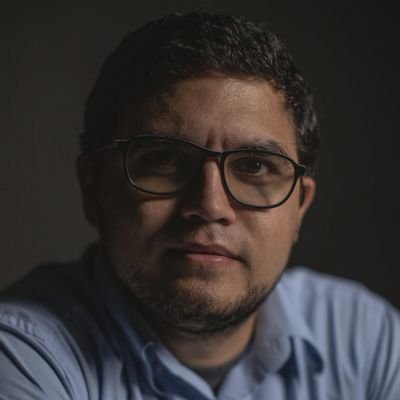Update (March 13): Venezuelan journalist Luis Carlos Díaz has been charged with public incitement, but was released from detention on the evening of March 12, according to freedom of expression organization Espacio Público.
He cannot leave the country and must appear before the courts every eight days, the organizaton added. Additionally, he is not allowed to talk publicly about the case.
Upon release, Díaz thanked his supporters. "Long live Venezuelan journalism, the Venezuelan info-citizens, all the power of the networks. It is the moment of truth," the journalist said in a video posted to the Twitter account of the National Union of Press Workers (SNTP, for its initials in Spanish).
Original (March 12): After having gone missing for eight hours, it was reported that the renowned Venezuelan journalist and human rights defender Luis Carlos Díaz is being held by the Bolivarian National Intelligence Service (Sebin, for its initials in Spanish), as the National Union of Press Workers (SNTP) of Venezuela posted via Twitter.

Luis Carlos Díaz (Twitter)
His wife and colleagues had not heard from him since 5:30 p.m. on March 11, when he left the Unión Radio Noticias station in Caracas, according to the SNTP.
It was only at 2:15 a.m. on March 12 when Sebin officials arrived at the house of Díaz and his wife, the journalist Naky Soto, that they learned of his detention, Soto said on W Radio. The officials arrived to carry out a raid and had Díaz in handcuffs. They accuse him of being involved with the electricity crisis that has affected Caracas since March 7, according to Soto.
In the few minutes that Díaz could see his wife, he said that he had been "a victim of cruel and degrading treatment during his detention," Provea reported. Sebin officials also allegedly assaulted journalists and activists who were at the home of Díaz y Soto at the time of the raid, denounced Marco Ruíz, secretary of the SNTP.
During the raid, Sebin officials took away computers, cell phones, a pen drive, cash, among other personal items, according to the organization Espacio Público. They also took Díaz, who is currently detained at the Sebin headquarters in El Helicoide, Espacio Público added.
The allegations against Díaz come after the vice president of the ruling party, Diosdado Cabello, aired on his show ‘Con el mazo dando’ what Espacio Público said is a manipulated video in which Díaz and Soto appear. The video alleges that they are planning the blackout that has affected Caracas since March 7.
In conversation with W Radio, Soto also said "they distorted" the video to link him with cyber attacks to cause the energy crisis, and said those accusations are "crazy.” As she explained, as soon as the blackout occurred, she and Díaz dedicated themselves to educating people on how to most efficiently use the energy that remained, which is why they never imagined that they would be accused of any crime.
Soto also said that one of the Sebin officials warned her "not to make a lot of noise" about Díaz's detention because she could also be detained, she told W Radio. She said they told her that at this moment she is not detained because of her "oncological condition." Soto is recovering from cancer.
On March 12, Soto and other colleagues appeared before the Prosecutor General’s Office to "reject the arbitrary detention" and demand the release of Díaz, according to the SNTP.
Journalists around the world and human rights organizations have been watching Diaz's situation since the night of March 11. When his whereabouts were unknown, the hashtag #DóndeEstáLuisCarlos was a trend in Venezuela and other countries in the region. At this time, the hashtag #LiberenALuisCarlos is also trend.
Díaz is also a Spanish citizen, so that country’s embassy in Venezuela has already been informed of the situation, Soto told W Radio. She also said that a visit from the team of the Office of the UN High Commissioner for Human Rights will also be taken advantage of to denounce the detention.
The Prosecutor General’s Office of Venezuela has not reported on Díaz’s case. However, in an announcement on March 12, Prosecutor General, Tarek William Saab, announced the opening of a new investigation against the opposition politician Juan Guaidó, who proclaimed himself president of Venezuela on Jan. 23, for his "alleged involvement in the sabotage carried out on the national electrical system.”
According to the SNTP, there have been 40 arbitrary detentions of journalists in the country so far this year.